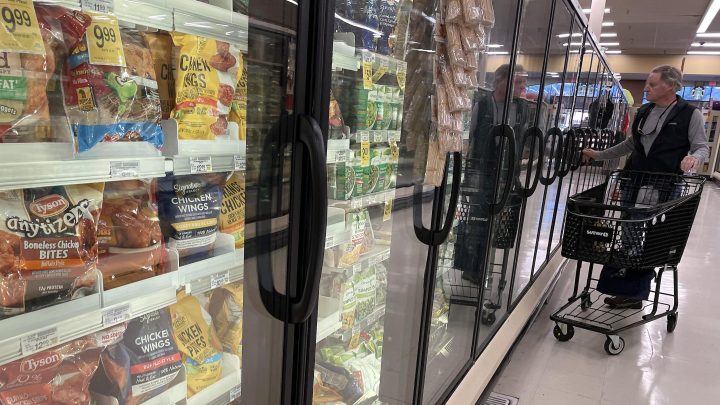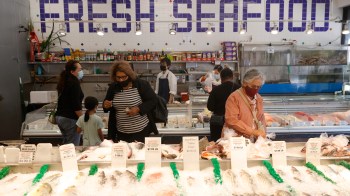
After the long night of inflation, consumers finally expect to see the sun
After the long night of inflation, consumers finally expect to see the sun

Three percent. That’s where consumers think inflation will be one year from now, according to the New York Federal Reserve’s Survey of Consumer Expectations, published Monday. It’s still above the Fed’s target of 2% annually, but it’s the lowest level of short-term inflation expectations in three years.
The survey conveys other notes of optimism too — people think they’re less likely to lose their jobs in the next 12 months and more likely to get access to credit.
The economy in the past few years has reminded St. Olaf College economics professor Allison Luedtke of what it’s like to get out of bed over and over again to tend to a newborn.
“Like it will never be daytime again,” she said. Like there would be high inflation forever.
“And then you finally get up and you’re like, ‘Oh, dawn!'” Luedtke said. “That’s what I think the consumers were feeling like.”
She said this report from the New York Fed is akin to consumers seeing the sun.
“People are finally starting to think like, ‘Hey, maybe this will be all right. Maybe we will bring down inflation and not have enormous unemployment,'” she said.
One reason consumers feel better, said Middlebury College economics professor Kristina Sargent, is that they aren’t dealing with huge price gains for necessities like gasoline and eggs.
“Those costs that they face sort of every day in their lives, they’re not seeing them go up and up and up and up anymore,” she said.
Still, the fact that consumers expect prices to be 3% higher a year from now could actually create a kind of self-fulling prophecy, said Veronique de Rugy, an economist and senior research fellow with the Mercatus Center at George Mason University.
“If you’re a consumer, right, and you think there will be inflation tomorrow, you buy the stuff today, rather than buy it tomorrow at a higher price. And when most people do this, it tends to push price upwards,” she said.
De Rugy pointed out that prices are already way higher than they were prior to the pandemic. So even though slower price growth would make consumers’ lives easier, she said we’re not getting back to where we were.
To return to Luedtke’s analogy, even though every night does eventually end, parents really never get as much sleep as they did before.
There’s a lot happening in the world. Through it all, Marketplace is here for you.
You rely on Marketplace to break down the world’s events and tell you how it affects you in a fact-based, approachable way. We rely on your financial support to keep making that possible.
Your donation today powers the independent journalism that you rely on. For just $5/month, you can help sustain Marketplace so we can keep reporting on the things that matter to you.

















